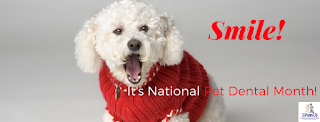Snellville Pet Sitter Talks About Why Dog Kisses Might Not Be the Best Idea for Your Health
We’ve all been there; we are happily saying hello to our fluffy friend Fido when all of the sudden he gets us on the mouth with his tongue. A thorough wiping of the mouth, gargling with water, washing our hands, and trying to remember what we last saw him licking ensues.
This isn’t an experience many seek out, but getting ‘doggy kisses’ can also be something a few owners love. While difficult to hear and common-sense for others, letting our dogs lick our mouths is bad for a number of reasons. Here are some hard facts about what happens when people let their dogs kiss them and why we should avoid it.
Why Do They Do It?
Dogs love licking our mouths for a variety of reasons, but primarily because it is a classic act of submission. In a pack, wolves would have a complicated social dance to go through based on one wolf’s relationship to the pack hierarchy. Your dog’s interactions with you are exactly that – their expression of their place in the family hierarchy.
By greeting you with attempts to lick your mouth, dogs are communicating their affection for their family member who is higher up in importance.
What Could Go Wrong?
In short, a lot of bad things can come from your dog’s love of licking your mouth. This is especially true if you are a member of the immunosuppressed, either being older, very young, or having an illness that suppresses your immune system.
While humans have a wide variety of microorganisms in our mouths, dogs have the same number, but different types, of bacteria based on their diet. Humans have evolved to co-exist with the majority of our germs; our bodies have developed a balanced ecosystem for our germs to both live on our skin and in our organs without killing us. If people start welcoming dogs to share the germs on their tongue, especially in our mouth, that carefully balanced ecosystem is ruined and we are very likely to be ill.
Bacteria? What Kind?
Dogs mouths have been shown to carry a wide variety of bacteria, normal to their bodies but causing serious issues in ours. Here is a short list of a few different types of bacteria commonly found in canine mouths and what they can do to humans (Kasempimolporn, Benjavongkulchai, Saengseesom, & Sitprija 2003):
- Klebsiella pneumoniae – can cause pneumonia, infections in the bloodstream and infections in open cuts
- Escherichia coli – primary cause of traveler’s diarrhea, urinary tract infections, meningitis in babies and pneumonia
- Staphylococcus aureus – naturally found on human skin, but if out of balance it can cause severe infections in the skin and lungs and can lead to food poisoning
- Citrobacter freundii – can cause infections of the respiratory tract, urinary tract, and blood in immunosuppressed people (people with certain illnesses, the very young and the very old)
- Enterobacter cloacae – infections in the lower respiratory tract, skin, and eyes
- Acinetobacter calcoaceticus – infections in the respiratory tract and open cuts
- Pasteurella species – causes infection in open cuts
Alternatives to Keep in Mind
A dog has naturally occurring behaviors that come from instinct, such as licking a human’s neck and mouth during greetings. These behaviors, while hard to retrain, can be changed to other submissive behaviors that don’t include licking.
Some of these behaviors are naturally occurring, such as a dog rolling over onto their back for belly rubs. This is an instinctual behavior that displays submission just like licking the neck and mouth. Another alternative to licking is to train your dog to sit and wait for attention, which maintains the dominant relationship while avoiding contact with your face. When retraining to not lick your mouth, the trick is to calmly but firmly turn away from their attention until they stop. Only when they are calm should you reward them with your attention.
Who doesn’t love kisses?
We all know a few dog owners who love to give their dogs ‘kisses’ and encourage their dogs to greet small children the same. These people often claim to never have been ill from their puppy kisses, and instead, view it as a cute greeting. Unfortunately, these types of interactions can cause mild illnesses that don’t seem abnormal at first glance. Only when the infection is severe, whether by chance or because the person is immunocompromised, can the dog be to blame. This means, regrettably, that it’s time to say no to the normal enthusiastic greeting from Fido.
Would love to hear from you.
Do you have any novel greetings you get from your pet which does not include puppy kisses? Let us know about them in the comments! Our Snellville Pet Sitters, Dog Walkers, and Dog Trainers are here to help you answer any questions or concerns you may have?
References:
Kasempimolporn, S, et al. “Oral bacterial flora of dogs with and without rabies: a preliminary study in Thailand.” Journal of the Medical Association of Thailand = Chotmaihet thangphaet., U.S. National Library of Medicine, Dec. 2003, www.ncbi.nlm.nih.gov/pubmed/14971525.




Comments
Post a Comment